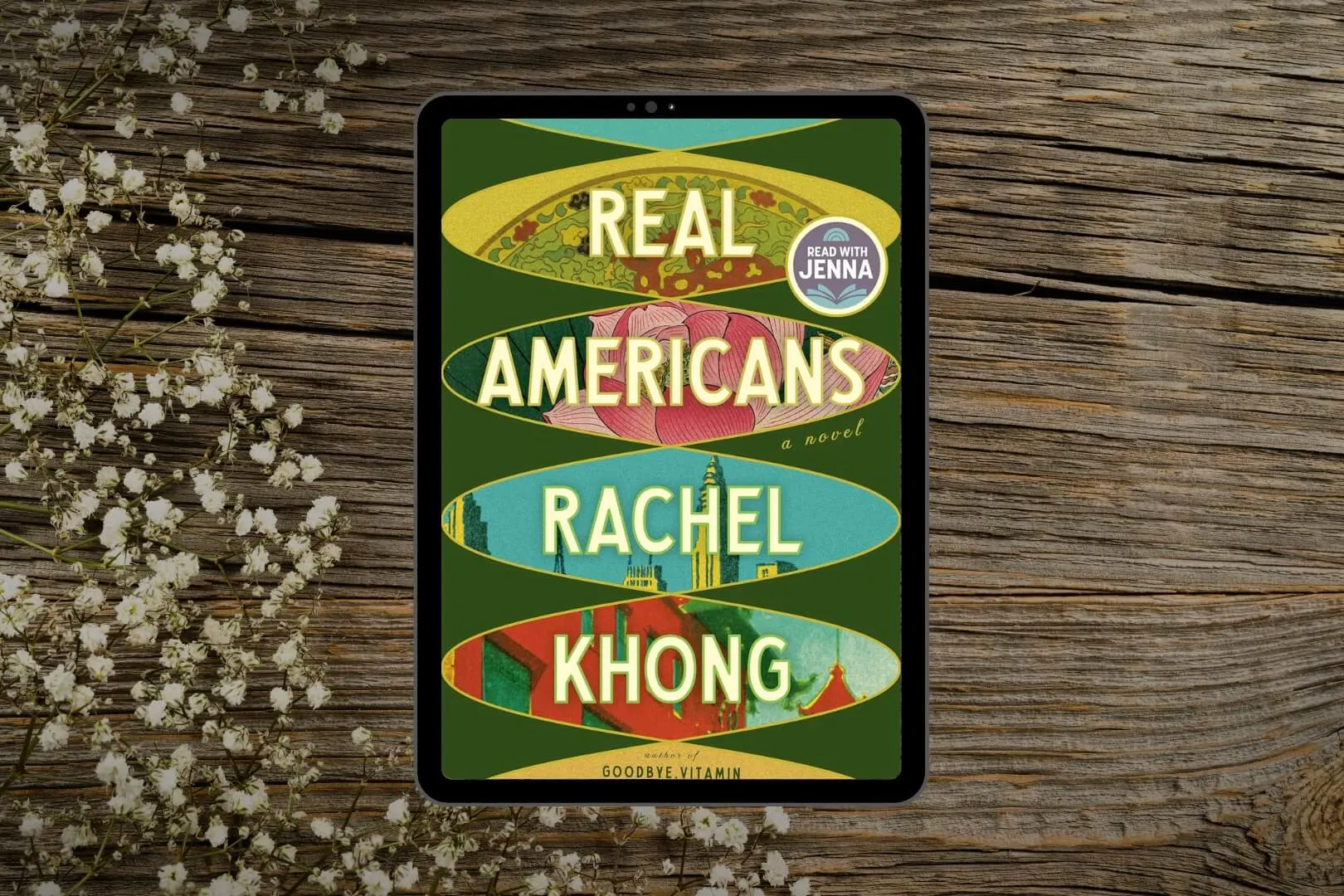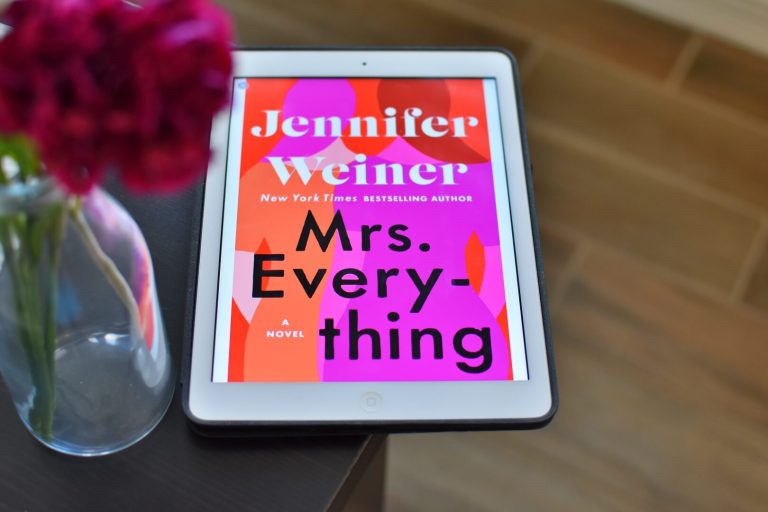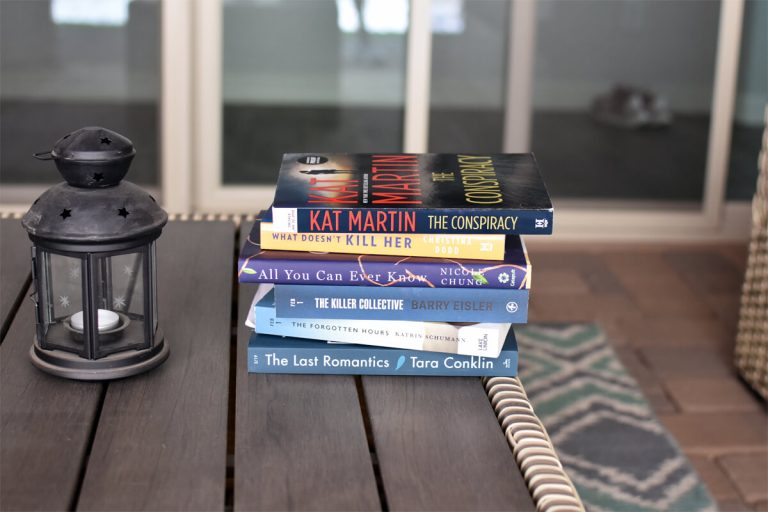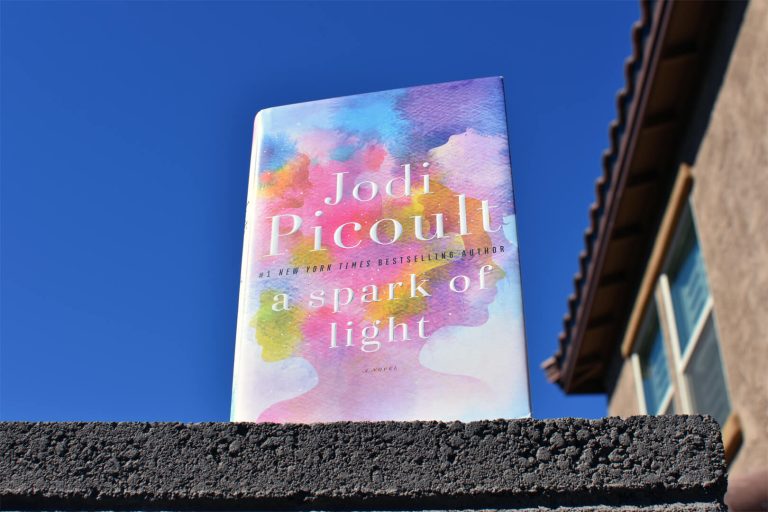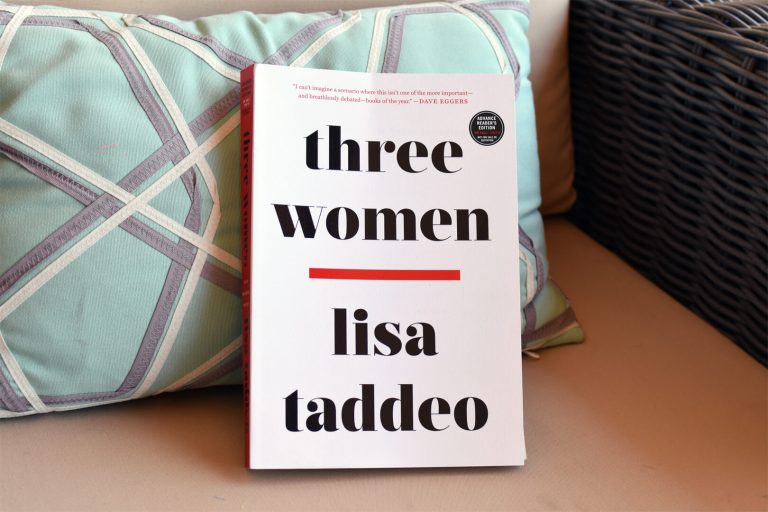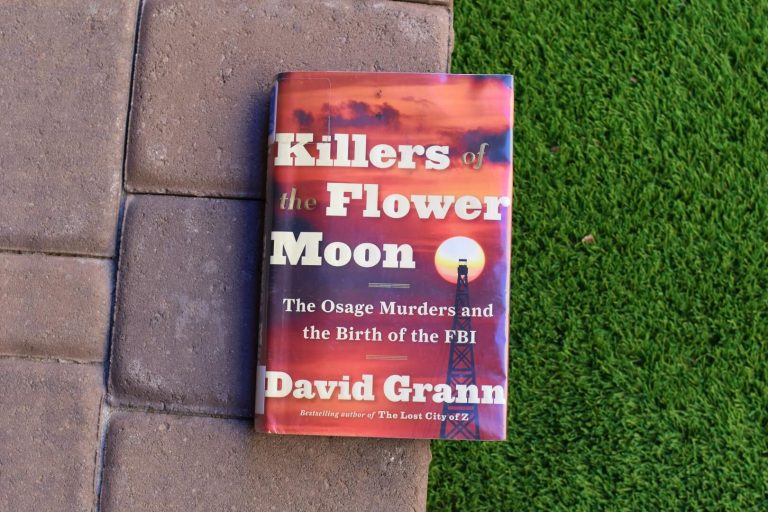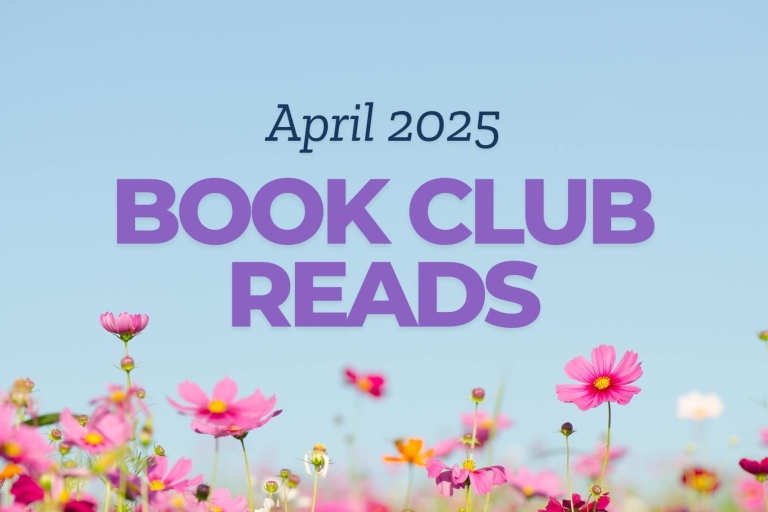Book club questions for Real Americans by Rachel Khong takes an in-depth look at this truly original novel about family and genetics. There will be spoilers so for more context about the story, check out my spoiler-free review first.
Overall, I quite enjoyed Real Americans. I found it unique and utterly engaging. And such a great ending too.
Let me know your thoughts about the book!
The Synopsis
Real Americans begins on the precipice of Y2K in New York City, when twenty-two-year-old Lily Chen, an unpaid intern at a slick media company, meets Matthew. Matthew is everything Lily is not: easygoing and effortlessly attractive, a native East Coaster, and, most notably, heir to a vast pharmaceutical empire. Lily couldn’t be more different: flat-broke, raised in Tampa, the only child of scientists who fled Mao’s Cultural Revolution. Despite all this, Lily and Matthew fall in love.
In 2021, fifteen-year-old Nick Chen has never felt like he belonged on the isolated Washington island where he lives with his single mother, Lily. He can’t shake the sense she’s hiding something. When Nick sets out to find his biological father, the journey threatens to raise more questions than it provides answers.
In immersive, moving prose, Rachel Khong weaves a profound tale of class and striving, race and visibility, and family and inheritance—a story of trust, forgiveness, and finally coming home.
Book Club Questions for Real Americans
- What does the book title, Real Americans, mean in relation to the entire story?
- The story starts with a mini prologue when May, Lily’s mother and Nick’s grandmother, consumes an ancient lotus seed, which has rippling effects for the entire family. Why was important to include this scene in the novel? What does it say about May’s character when she decided to consume the seed instead of study it?
- What were your initial impressions of Lily during the section dedicated to her romance with Matthew? Why were her and Matthew drawn to each other?
- Lily’s mother did not hide her unhappiness about the marriage between Lily and Matthew. When did it become apparent there was more to the story there?
- We eventually learn that Otto, Matthew’s father, and May experimented on their own children with the idea of changing their futures for the better. Why did May and Otto feel compelled to embark on this? And how did it change both of their families for good?
- Lily is horrified when she finds out the truth and leaves behind her mother for good. How would you have reacted if you were Lily? Why didn’t Matthew join Lily and Nick?
- We then jump to Nick’s timeline where’s he’s a somewhat lost 15-year-old. Lily lied to him about several key facts about his family. Let’s talk about the impact of Lily’s lies on Nick.
- Eventually Nick does reconnect with Matthew and is rather taken in with Matthew’s world. What did you think about the dynamic between Matthew and Nick?
- Nick looks almost like a carbon copy of Matthew. But regarding his personality and outlook on life, do you feel he was more similar with Lily or Matthew?
- Matthew has another son and he is an addict and trying everything to get his father’s attention. Eventually he overdoses and dies right in front of Nick. How did this traumatic experience change his perception of Matthew and that side of the family?
- The third section is dedicated to May, who tracks down Nick in her 80s and eventually tells him the truth about everything. What were your thoughts as you read all the reveals by May? Did it make her more sympathetic as a character? Why or why not?
- We learn Nick is involved with a start up that is also focused on changing one’s future and life expectancy. Why is this family so focused on changing genetics? What are they trying to avoid and also change?
- What did you think about the ending and Lily finally reuniting with May?
- What happens next for Nick, Lily and Matthew going forward?
Additional Recommendations
Hope you enjoyed book club questions for Real Americans! Here are some more recommendations along with links to book club questions.
The Vanishing Half by Brit Bennett
Another interesting story about choices is The Vanishing Half by Brit Bennett. Check out my book club questions here.
The Vignes twin sisters will always be identical. But after growing up together in a small, southern black community and running away at age sixteen, it’s not just the shape of their daily lives that is different as adults, it’s everything: their families, their communities, their racial identities. Many years later, one sister lives with her black daughter in the same southern town she once tried to escape. The other secretly passes for white, and her white husband knows nothing of her past. Still, even separated by so many miles and just as many lies, the fates of the twins remain intertwined. What will happen to the next generation, when their own daughters’ storylines intersect?
Weaving together multiple strands and generations of this family, from the Deep South to California, from the 1950s to the 1990s, Brit Bennett produces a story that is at once a riveting, emotional family story and a brilliant exploration of the American history of passing. Looking well beyond issues of race, The Vanishing Half considers the lasting influence of the past as it shapes a person’s decisions, desires, and expectations, and explores some of the multiple reasons and realms in which people sometimes feel pulled to live as something other than their origins.
The School for Good Mothers by Jessamine Chen
An impactful story about motherhood is The School for Good Mothers by Jessamine Chen. Check out my book club questions here.
Frida Liu is struggling. She doesn’t have a career worthy of her Chinese immigrant parents’ sacrifices. She can’t persuade her husband, Gust, to give up his wellness-obsessed younger mistress. Only with Harriet, their cherubic daughter, does Frida finally attain the perfection expected of her. Harriet may be all she has, but she is just enough.
Until Frida has a very bad day.
The state has its eye on mothers like Frida. The ones who check their phones, letting their children get injured on the playground; who let their children walk home alone. Because of one moment of poor judgement, a host of government officials will now determine if Frida is a candidate for a Big Brother-like institution that measures the success or failure of a mother’s devotion.
Faced with the possibility of losing Harriet, Frida must prove that a bad mother can be redeemed. That she can learn to be good.
Happy reading!
